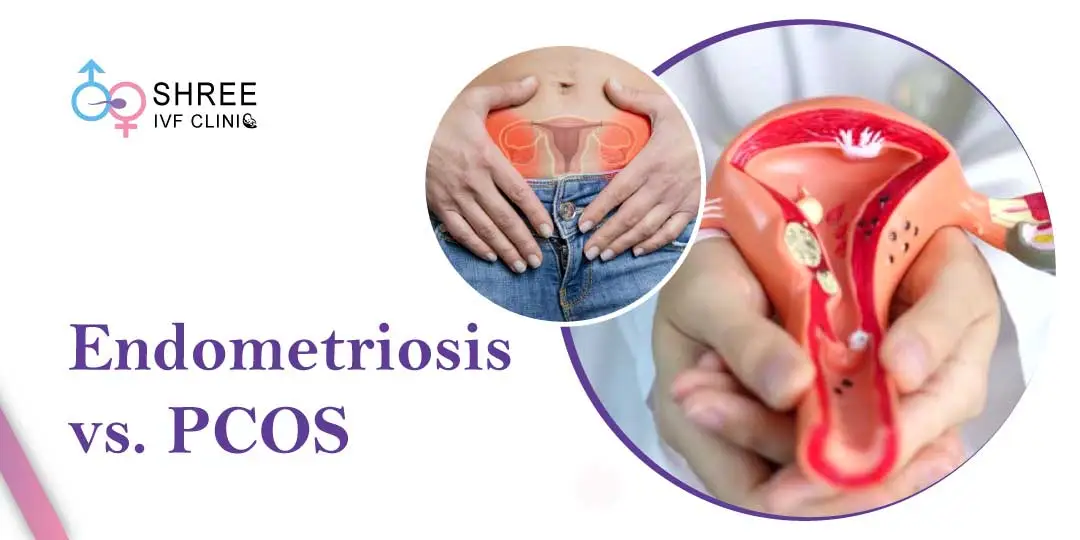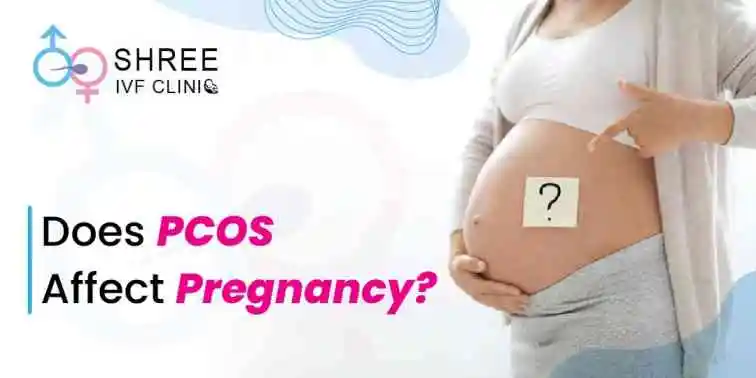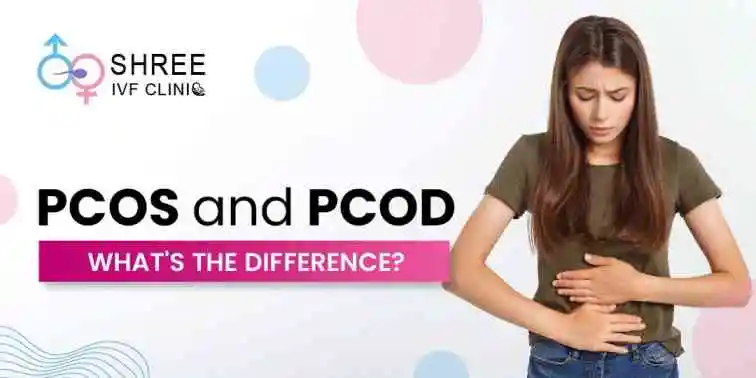What happens in PCOD: Every woman needs to know
UPDATED ON 1 OCT. 2021
Did you know that 6 out of 10 women suffer from PCOD? Yes, that is true. A hormonal issue that affects the ovaries and ovulation has become a common health issue in women. It has symptoms like excess hair growth on the face and the body, irregular periods, male-pattern baldness, and so on.
In this case, it becomes crucial to understand if you have PCOD or it’s just irregular periods caused by some other health issues. This blog gives basic information on PCOD, PCOD and how it affects your chances of having a baby.
AUTHOR
Dr Jay Mehta
Scientific Director & IVF Specialist with 10+ years of experience
CONDITION
GET IN TOUCH ON
What is PCOD?
PCOD or Polycystic ovary disease is a condition where the hormones go crazy. There are two sex hormones in the female body. The ovary produces estrogen and a tiny bit of male sex hormones: testosterone and androgens.
This balance regulates the development of eggs and their release every month. When this balance goes off, say a little more androgens, the ovaries will stop ovulating.
With the increase in levels of androgen, the ovaries will release partially or completely immature eggs. These eggs are thus useless and form tiny cysts around the ovaries. You may experience abdominal pain and weight gain in such situations.
Now, in another similar condition, the eggs may stop from maturing and from tiny cysts. These sacs are filled with liquid and tend to enlarge. It is where Polycystic ovary syndrome or PCOS happens. This condition could be genetic, or it may occur should you have diabetes.
Is PCOD serious? What are its symptoms?
Well, No. PCOD is a severe disease. With proper diet and maintenance, its symptoms can be controlled and regulated. However, PCOS, a similar condition to PCOD, is a considerable threat. To understand this, refer to the next section: The difference between PCOD and PCOS.
Now, how do you know you have PCOD?
Initially, you will miss your periods and experience acne and excess body hair. It will include hair on the chest, face, belly, and back. You may also face hair fall or male pattern baldness due to excess androgens. Additionally, the issue might advance, and conceiving could be difficult.
Most importantly, most of you will have irregular periods. Sometimes, you will not have periods for two months and will have longer than usual periods if you do. In extreme cases, it can affect your mental health and result in depression.
If we do not treat PCOD, it may lead to complications like insulin-resistant diabetes and obesity. It also increases cholesterol levels that might cause heart problems.
Basic Difference between PCOD vs PCOS
Although you might feel that both PCOD and PCOS function the same way. Both conditions form cysts, so why are they two separate terms?
Under this sub-verse, we will clear out the distinction between the two disorders. Below is a table that draws out the line between PCOD and PCOS.
| Situation | PCOD | PCOS |
| Seriousness | We can regulate it with a good diet and regular visits to your doctor. It is mainly due to hormonal imbalance that will be controlled with some supplements. | It is a rather serious condition since it is metabolic in nature. It is a disorder related to the endocrine system which is affected significantly. |
| Impact on the globe | More common. It includes one-third of the female population. | In comparison, PCOS has a significantly lower number of occurrences. |
PCOD and Infertility (How to control PCOD?)
While hormonal imbalance causes the hormones to go crazy and not in a good way, you may also experience difficulty conceiving. These triggers in the balance can cause your eggs to not mature or not release altogether. It is an occurrence of PCOS as well.
Nonetheless, to get pregnant, you need a mature egg to infuse with the sperm. For that to happen, you need the egg to release itself. With PCOD, you can still manage it with good food, a healthy diet, and necessary supplements. Consult a doctor to manage your condition.

4,790+
379K+
” Every individual and couple’s journey is unique, and
finding the right solutions tailored to their specific
circumstances can make all the difference “
Conclusion
Regardless of wanting to have a child or not, you should always consult a doctor if you have irregular periods. Consult a doctor if you observe any sudden changes in the body concerning weight gain or otherwise. Your doctor will examine your condition and will decide the best PCOD treatment based on your requirement.
If you have any other queries, contact our health professionals.
AUTHOR
Dr Jay Mehta
Scientific Director & IVF Specialist with 10+ years of experience
CONDITION
CALL US 24/7 FOR ANY HELP
GET IN TOUCH ON
Share Article on
Recommended Reading
Endometriosis vs. PCOS: What’s the Difference?
PCOS causes irregular or absent periods due to a hormone imbalance and high insulin/male hormones, while endometriosis causes painful periods without hormone imbalance
Does Polycystic ovarian syndrome (PCOS) Affect Pregnancy?
Yes. PCOS impact on your pregnancy. Keep reading to find out how PCOS can impact your chances of getting pregnant.
PCOS and PCOD – What’s the Difference?
PCOS is caused by an imbalance of hormones whereas PCOD is caused by an overproduction of testosterone.




